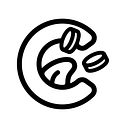Typically, the most powerful organisations of both the past and present have been at some point subjected to centralised points of control, which ultimately tends to lead to their demise. This can be evidenced throughout history in a variety of ways. DAOs are run on programming code written on a collection of smart contracts predominantly created on Ethereum — for now.
Governance, Ownership & Voting in DAOs
Communities who make use of DAOs may have a say in changes or modifications that are made to the DAOs, however, in order to do this they must participate in the ownership usually of its governance tokens. Token holders are then able to make suggestions for modifications, which can be voted on by other participants or token holders. This creates a governance model whereby people who may not be your typical leaders, but happen to give support and innovative ideas, have an opportunity to become a part of the organisation’s development. This is without boundaries in a trustless manner, however, security can still be breached should there be 51% control of tokens or lobbied voting powers by a malicious group of actors.
The Power of Decentralized Funding
DAOs are clearly becoming the decades optimum mode of investment — one recent example of a successful round is BitDAO, which raised $230M in 20 minutes and $365M by the time the token sale was complete. Over $7.5B is currently held in such vehicles according to analytics platform DeepDAO. This is an incredible statistic when considering how likely it is that less than 10% of politicians could even begin to describe what a DAO is. Truly remarkable when considering there is a whole generation who could probably navigate the likes of Uniswap — a Decentralized Exchange (DEX) and the connectivity and use process without batting an eyelid.
The DAO Exploit that Saved Ethereum
After a rocky start to DAOs in the ICO era in 2015 which included the first DAO hack, most easily described as a three stage hack involving the setup of the first DAO ($TheDao raising 12 Million Ethereum) and a reentrancy exploit whereby hackers discovered a bug where withdrawal balances were not updating in the contracts. The third stage was the defense and coming together of the legendary Robin Hood hacker group. The group came together as white-hat hackers to self-exploit the contracts by amassing $TheDao tokens in order to be able to withdraw large amounts of tokens without balance change. They then used the same technique the hackers were using, withdrawing a larger amount of tokens than the hackers. The Robin Hood group was the first public white-hat hacker group in crypto to save a network and without them saving the Ethereum networks failure, we wouldn’t have the security of operation we see within DAOs today. The Robin Hood group allowed communities to understand the initial vulnerabilities of smart contracts in protocols and be able to continually identify them through coming together of participants in governance. Evidencing the maturity of the DAO era, there are now a number of organisations which have been established as platforms intended to securely assist with the creation of DAOs including the likes of Aragon, Colony, and DAOStack.
Common DAO critics will point to a number of things. The most short sighted of which will reference the hacks, without the understanding that they genuinely increased the longevity and security of such protocols. The slightly more knowledgeable critics will point to the reality that in some cases DAOs can be manipulated by a small few who may otherwise be known as whales. In response to this however, much like any obstacle in crypto, the failures and exploits have simply led to further innovation.
“Reflection” is a counteracting adaptation of protocols preventing token holders from being swindled through whales selling, as it rewards those who HODL. Every time a sale or transaction is made there is a % tax, some of which goes to token holders as rewards, and some of which is burned, thus, limiting the damage that can be done by whales to smaller token holders.
The evolution of the DAO is certainly something to behold. An example of both human persistence and brilliance, and a group of people working together not only in trustless consensus, but also autonomously in a decentralized manner to better the systems of finance we have in place today. The law is slowly catching up with the new age of protocols we are being graced with and it is clear to most that whatever adversities are thrown at these systems, innovation will always find a way to prevail.
Don’t forget — The first monthly NFT Raffle is live on BurpToken.com! Users who have accumulated Raffle Tickets from staking are able to enter with tickets into the raffle to be in with the chance to win some exclusive MealDrops or Sandbox NFTs. Be sure to check out the launch video and article for more information!
Stay up to date with everything by following the channels and joining the social communities!
About CoinBurp
CoinBurp is the cryptocurrency platform partner for the $BURP ecosystem that includes Cede Fields Ltd for token issuance and CB Defined Ltd for DeFi products. The tokens are not issued or controlled by CoinBurp.
About $BURP
$BURP is the official token of the $BURP ecosystem of products including but not limited to non-custodial token management, staking mechanisms, NFT raffles.
Important Information
Cryptocurrencies and crypto tokens are generally not regulated and investors do not have access to recourse or compensation schemes such as, for example, in the UK, the Financial Ombudsman Service or the Financial Services Compensation Scheme. Investing in cryptocurrencies and purchasing crypto tokens can be high risk and investors should carefully evaluate their appetite for risk and their understanding of trading cryptocurrencies prior to entering into a transaction.
